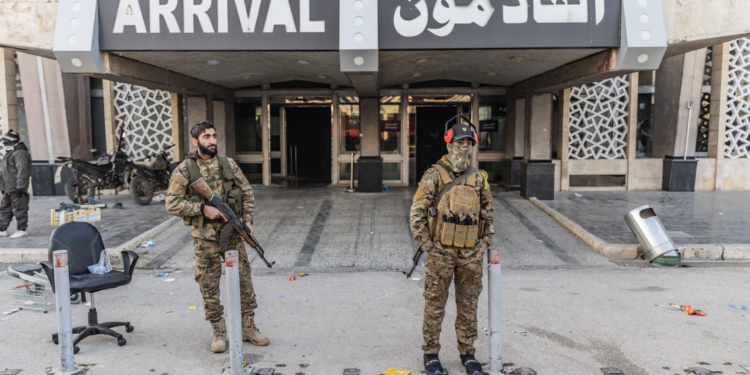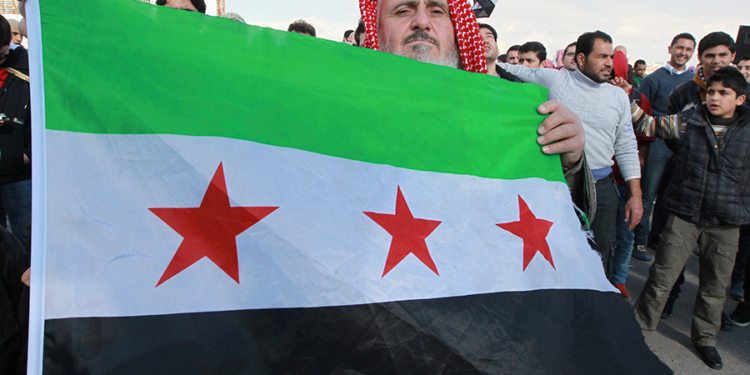In addition to assuaging public fears about the agreement, officials will need to reach a shared understanding with Washington about how to enforce its terms and respond to Hezbollah violations.
In the lead-up to the new ceasefire with Hezbollah, the Israeli public—impressed by their military’s achievements in Lebanon over the past two months—had high expectations for the terms their leaders would ultimately negotiate. After all, Israel had decapitated much of Hezbollah’s top leadership, eliminated a large part of its arsenal, and destroyed tunnels near border villages that were intended to be used for an attack on northern Israel.
This outcome also shattered the mutual deterrence that had existed since the 2006 war. In accepting a ceasefire, Hezbollah agreed to decouple its war with Israel from Hamas’s war in Gaza, something the group’s late leader Hassan Nasrallah had pointedly refused to do. Moreover, Iran—Hezbollah’s patron and arms supplier—welcomed the ceasefire in a public statement. This was likely a bitter pill for Tehran to swallow given that it has long viewed Hezbollah’s arsenal of 150,000 rockets as a deterrent to potential Israeli military strikes on the Iranian nuclear program.
In light of these successes, local officials in northern Israel felt that the government had ample leverage to demand strong ceasefire terms that would avoid a repeat of 2006, when UN Security Council Resolution 1701 was adopted. That resolution was intended to end the war and bring stability to southern Lebanon and northern Israel by ensuring that Hezbollah did not deploy south of the Litani River. Yet it failed completely, in large part because the Lebanese Armed Forces (LAF) were unwilling to prevent Hezbollah from returning to these areas, and also because the international community lost interest in the resolution once the war ended.
During the current war, northern Israeli mayors—who represent many of the estimated 60,000 citizens displaced from their homes since October 2023—repeatedly urged the government to establish a depopulated buffer zone in southern Lebanon. Without such a buffer, they argued, Hezbollah fighters would continue embedding themselves within the Lebanese border population and launching short-range antitank weapons at nearby Israeli towns. The mayors warned that under such conditions, northern residents would be unwilling to return home.
Now that the terms of the ceasefire have been announced, a recent poll by Israel’s Channel 12 indicates that only 37 percent of the general public supports it. Yet many Israelis are hopeful that the agreement will ensure their right to self-defense given the government’s reported side letter with the United States. (The specific contents of this letter have not been released, but it is believed to give Israel some leeway for responding militarily to Hezbollah violations and, perhaps, maintaining certain kinds of reconnaissance flights over parts of Lebanon.) Many Israelis are also eager to see less burden on reservists, which the ceasefire may soon bring if it holds.
Coordinating the Compliance Adjudication Mechanism
Central to the ceasefire is an enforcement mechanism to adjudicate compliance. The United States plans to aid in enforcement by chairing a panel that reviews complaints. Specifically, Washington could leverage its advanced intelligence capabilities to ascertain if there has been a violation and/or insist that the LAF address the problem. Israel is hopeful that U.S. involvement could make the difference. Moreover, Congress is likely to condition any new funding for LAF on the seriousness of its compliance.
Yet U.S. oversight of the compliance mechanism will face scrutiny. Critics may question whether this process could slow Israel’s response, limit its freedom of action, and even make the United States culpable for perceived failures. Prime Minister Binyamin Netanyahu is likely focused on this potential friction because of the political controversy surrounding the ceasefire within Israel. More Israelis are now critiquing the mindset that had prevailed in their country since 2006, which was to turn a blind eye to violations in order to preserve the fragile quiet that Resolution 1701 created. In Israel, the phrase “we became addicted to calm” is commonly used to advocate a more preventive or preemptive stance on threats before they become catastrophic. This issue is particularly acute now, when both sides are mutually testing the ceasefire during its opening phase. For instance, when Hezbollah recently fired two mortars at an Israeli military base on Mount Dov, adjacent to the Golan Heights, Israel responded with attacks on thirty targets in Lebanon.
U.S. officials are hopeful that the ceasefire will hold. President Biden’s envoy Amos Hochstein, who brokered the ceasefire, stated on CNBC that this new U.S.-led mechanism will ensure “on the ground” that Hezbollah is “not returning,” that there is “dismantling of their terrorist infrastructure,” and that terrorist organizations do not have “a foothold in South Lebanon again.” However, there are several challenges that could undermine these goals.
First, international fatigue is bound to reappear after the fighting ends, as it did in 2006, reducing foreign interest in ensuring compliance. Second, Iran and Hezbollah are bound to use their friendly media outlets to deny any violations, making it easier for the group to rebuild. Third, the United States and France—both of whom will be part of the new mechanism—might not view violations and military responses the same way Israel does. For instance, both governments reportedly felt that some of Israel’s responses in the first days of the ceasefire were excessive. Moreover, Lebanon is bound to urge France to take a more lenient view of any Hezbollah violations given the potential damage wrought by Israeli military responses.
Thus, as Hezbollah probes to see what it can get away with during the ceasefire, the United States and Israel must develop a shared approach to defining major violations and addressing them, in part to avoid bilateral friction. Israel will usually prefer a stronger military response to deter Hezbollah and set the “rules of the game,” while Washington and Paris may believe that too strong a reaction could lead back to war. Earlier today, for example, U.S. ambassador Jacob Lew cautioned Israel not to equate small infractions with major violations.
U.S. officials also say the mechanism does not cover the area north of the Litani River or other entry points into Lebanon, such as the border with Syria or Beirut airport. As a result, Israel might conclude that it has leeway to keep hitting Iranian resupply convoys in Syria and, perhaps, to strike elsewhere. Yet this gap in the mechanism could also mean that weapons continue flowing into Lebanon, underscoring the need for U.S.-Israel intelligence sharing.
The biggest question hovering over the ceasefire is whether the LAF will finally have the willpower to confront Hezbollah. One would hope that the Lebanese government understands the stakes given the destructive failures that followed Resolution 1701 after 2006, but there are no guarantees. If the United States and Israel do not work together, the LAF could easily revert to the path of least resistance and avoid confronting the so-called “resistance.”
How the United States and Israel Can Work Together
Leading the U.S. ceasefire implementation effort will be Maj. Gen. Jasper Jeffers, the head of Special Operations Command Central, who will co-chair the U.S. side with Hochstein during the sixty-day transition period and ensure that the adjudication mechanism is addressing violations effectively. The United States will focus on violations such as rocket launcher deployments south of the Litani, tunnel construction, and weapons manufacturing. Investigations into violations will apparently take place within twenty-four to twenty-eight hours after a complaint is made. Netanyahu, however, may wish to go further. If most residents of northern Israel are unable to return to their homes, he is bound to see this as the final verdict on the ceasefire and could start pressing for greatly expanded military responses to Hezbollah violations.
Bilateral cooperation could take different forms, but a shared approach is essential for effective implementation. As noted above, reaching an agreed definition of “ceasefire violation,” is paramount. This would enable close cooperation between the Israel Defense Forces Northern Command, Jeffers’ team in Beirut, and U.S. Central Command in identifying threats and sharing intelligence that goes beyond southern Lebanon, given Hezbollah’s desire to rebuild itself through Iranian arms transfers via Syria and other activities. Additionally, U.S.-Israel cooperation on public messaging will be critical as Iranian and Hezbollah media outlets try to downplay the group’s likely violations. Washington demonstrated the importance of sharing declassified intelligence to help shape public narratives after Israel was wrongfully accused of bombing a Gaza hospital just after October 7. This template should be considered if similar situations arise in Lebanon. Finally, if European and Gulf states offer new support to the LAF at an upcoming donor conference, the United States should encourage them to link this assistance to LAF compliance with the ceasefire’s terms, as Congress is likely to require.
Conclusion
Some may argue that close coordination on these issues is not particularly critical at the moment, claiming that it will take years for Hezbollah to rebuild its capabilities. Others might point to the sixty-day transition period, which coincides with the start of the Trump administration, as an opportunity to review the policy and potentially make adjustments.
Yet U.S. credibility is important in itself, and maintaining it will be difficult if the ceasefire agreement falls apart. To ensure the agreement’s success, the United States and Israel must have a shared understanding of the ceasefire’s terms and how to act if it is violated. This is key to strengthening the credibility of the enforcement mechanism and ensuring that all parties have learned from the failures of Resolution 1701.
David Makovsky is the Ziegler Distinguished Fellow at The Washington Institute, director of its Koret Project on Arab-Israel Relations, and creator of its long-running podcast Decision Points.










































